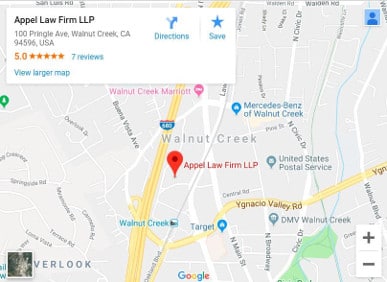Main Takeaways:
- If your claim has been denied, you can pursue that claim further, obtaining the support you need through an appeal.
- During a hearing, make sure your evidence is prepared. This includes medical evidence, records, depositions, medical opinions, and testimonies.
- The questions asked during this hearing are nearly always customized to fit the case at hand. There will be questions about the incident, how the incident occurred, how you overcame/are overcoming your injury, and questions about your doctor’s treatment plan.
- Hearings take about an hour, but they can be much longer especially in situations where the case is complex.
Workers’ compensation is meant to provide individuals hurt on the job with financial support as a result of work-related losses. However, getting the compensation desired can be a challenge in many cases. In some situations, individual employers or workers compensation insurers can deny claims. There are many reasons this can happen. If your claim has been denied, you do not have to stop there. You can pursue that claim further, obtaining the support you need through an appeal.
You’ve Suffered a Loss, But Denied: Now What?
Unfortunately, it is common for legitimate workers’ compensation claims to be denied, leaving applicants without the financial support they need. However, there is an available appeals process that could have you in front of a workers compensation board in a hearing. That hearing will lead to numerous questions about what happened and when. These questions can be intense and you may even feel as though you’ve done something wrong.
Because you need to answer these questions in front of the board, it is nearly always a good idea not only to work with an experienced workers’ compensation attorney but also to prepare yourself for what could be asked.
Preparing with Evidence
The first step is to gather any details and evidence available that could support your case. Doing this before heading into the hearing gives you the best chance at overturning a denial. For example, this may include any medical or vocational evidence available. Insufficient medical evidence is perhaps one of the most common reasons claims are denied.
When working with your attorney, you’ll be able to learn more about the details needed. This may include medical records, gathering depositions from experts, obtaining multiple medical opinions, and arranging or obtaining treatment from multiple providers. Vocational testimony can also help.
This may include statements about the physical requirements of your job, evidence of poor workplace safety conditions, details from family members about daily activities and even evident showing a lack of training. Every situation is different, but these common concerns can be key areas to focus on when heading into a workers compensation hearing.
What Workers’ Compensation Hearing Questions Will There Be?
The questions asked during this hearing are nearly always customized to fit the case at hand. The board aims to be neutral and will question every component of your claim. Some of the questions may include:
- Questions about the incident
- Details about why the incident occurred
- Evidence-based questions
- Information related to your injury
- Steps you took to overcome your injury
- Questions about your doctor’s or treatment plan
- Questions regarding your honesty if this is an area of concern
The questions can range widely. Generally, when you arrive for the hearing or even a trial, your attorney will present the “theory of the case” to the judge. This is done as a statement and specifically states why you deserve to receive benefits. It is possible for people to be called in and questioned regarding any depositions necessary.
What Happens During a Hearing?
Generally, an administrative law judge hears the claim. You may be asked to testify in the case, or you may not need to do so. Most importantly, you do not want to offer any information or details you are not specifically asked. It’s okay to say you do not know the answer to a question if that is the case. Never speculate on the details and always be honest about what actually happened. Often, it is the details that can play a significant role in understanding the outcome.
How Long Do Workers’ Compensation Hearings Last?
Generally, hearings take about an hour, but they can be much longer especially in situations where the case is complex or disputed significantly. In some situations, a decision is easy to make and is made right away. In most cases, it can take time.
A written order will be created by the presiding judge. This can take 30 to 90 days to occur. If you disagree with the order that is created, you may appeal the decision, and an appeal date will be provided to you.
Ensuring You Get the Best Possible Outcome
Workers compensation claim denials are common because they often lack the key information necessary to ensure benefits are given. However, when you step into a hearing, it becomes you versus an insurance company. That’s a complex situation. When you are facing workers compensation hearing questions, you need to know what to say, what not to say, and how to respond to ensure you get the best possible outcome.
That is why working with a skilled and experienced workers compensation attorney is so valuable. It can make the difference in your outcome. And, it can help to reduce your anxiety about what you are facing in a court of law if you are asked questions. Contact our offices today to learn more about our ability to defend you win a workers compensation claim. It’s important to know your rights in appeals.
Our Walnut Creek workers compensation attorneys are also experienced in helping injured workers in Concord, Pleasant Hill, and all throughout the Bay Area
Related Information

Speak Your Mind